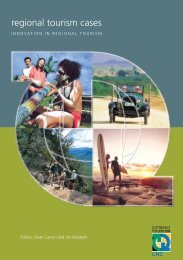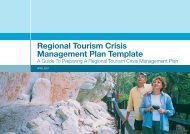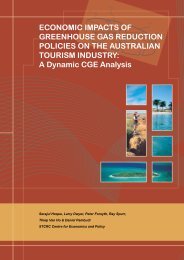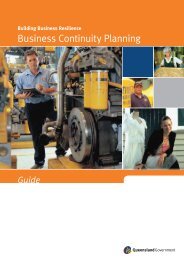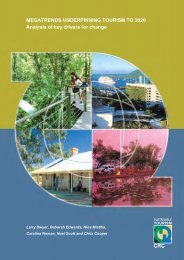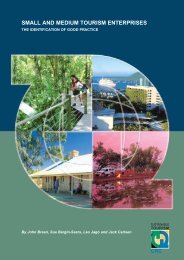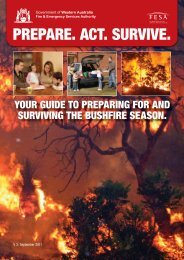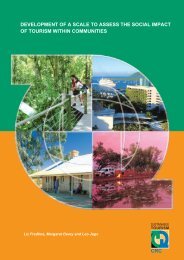Tourism Risk Management - Sustainable Tourism Online
Tourism Risk Management - Sustainable Tourism Online
Tourism Risk Management - Sustainable Tourism Online
Create successful ePaper yourself
Turn your PDF publications into a flip-book with our unique Google optimized e-Paper software.
APPENDIX A: GLOSSARY OF TERMS<br />
The following definitions used throughout the guide are from AS/NZS 4360:2004 <strong>Risk</strong> <strong>Management</strong>,<br />
and Emergency <strong>Management</strong> Australia’s Emergency <strong>Risk</strong> <strong>Management</strong> Applications Guide, Second<br />
Edition, 2004.<br />
Community<br />
A group of people with a commonality of association and generally defined by location, shared<br />
experience, or function.<br />
Consequences<br />
Outcome or impact of an event.<br />
Control<br />
An existing process, policy device, practice or other action that acts to minimize negative risk to<br />
enhance positive opportunities.<br />
Elements at <strong>Risk</strong><br />
The population, buildings and civil engineering works, economic activities, public services and<br />
infrastructure etc, exposed to sources of risk.<br />
Emergency<br />
An event, actual or imminent, which endangers or threatens to endanger life, property or the<br />
environment, and which requires a significant and coordinated response.<br />
Emergency risk management<br />
A systematic process that produces a range of measures contributing to the well-being of<br />
communities and the environment.<br />
Environment<br />
Conditions or influences comprising built, physical and social elements which surround or interact<br />
with the community.<br />
Hazard<br />
A source of potential harm.<br />
Lifeline<br />
A system or network that provides services on which the well-being of the community depends.<br />
Likelihood<br />
Used as a general description of the probability or frequency.<br />
Monitor<br />
To check, supervise, observe critically, or record the progress of an activity, action or system on a<br />
regular basis in order to identify change from the performance level required or expected.<br />
Preparedness<br />
Arrangements to ensure that, should an emergency occur, all those resources and services which<br />
are needed to cope with the effects can be efficiently mobilized and deployed.<br />
Prevention<br />
Regulatory and physical measures to ensure that emergencies are eliminated or their effects<br />
mitigated.<br />
<strong>Tourism</strong> <strong>Risk</strong> <strong>Management</strong> – An Authoritative Guide to Managing Crises in <strong>Tourism</strong> 87



